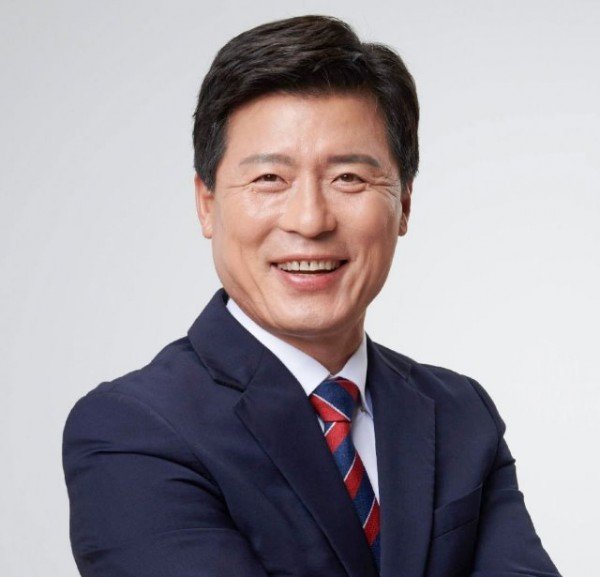구자근 국회의원, 원자력발전 에너지 안보와 경제 발전 핵심 에너지원 "전면적인 정책선회 절실" Nationa…
과기부 정책용역자료, 전 세계 원전보유국 30개국 중 23개국(77%)이 확대·유지 전망, 17개 국가는 신규 도입
미국, 중국, 일본, 영국, 등 주요국 원전 확대 하는데 대한민국은 탈원전
세계 원전시장 향후 20여년간 1천억달러+α 신규 원전시장 예상
경제성과 신기후체제에 맞춰 원전운영 국가들 원전의존 정책을 유지, 원전 프로그램에 관심 갖는 국가도 증가 추세
Policy service data from the Ministry of Science and Technology, 23 countries (77%) out of 30 countries with nuclear power plants in the world are expected to expand and maintain, and 17 countries are newly introduced new ones.
The United States, China, Japan, the United Kingdom, and other major countries are expanding nuclear power plants.
World Nuclear Power Market Expected $100 billion+α New Nuclear Power Plant Market Over the Next 20 Years
The number of countries that operate nuclear power plants in line with the economic feasibility and the new climate system has been increasing, and the number of countries interested in nuclear power plant programs is also increasing.
(전국= KTN) 김도형 기자= 과학기술정보통신부의 정책용역 자료에 따르면 문재인 정부의 탈원전 정책과는 달리 전세계적으로 원전이 확대될 것으로 전망되며, 현행 원전 운영국 총 30개국 중에서 향후 유지 및 확대정책은 미국, 중국, 일본, 러시아, 인도, 캐나다, 영국 등을 비롯한 23개국(77%)에 달하며 축소 및 폐지는 7개국(23%)에 불과한 것으로 밝혀졌다.
이같은 사실은 과기정통부가 주관하고 원자력산업협회가 작성한 <2018년도 원자력산업실태조사>(2020.4) 자료를 통해 밝혀졌다.
정부 실태조사 자료에 따르면 “우리나라에서의 원자력은 준국산 에너지로서 에너지 안보와 경제 발전의 주역인 에너지원으로 국내에서 매우 중요한 산업임을 입증하고 있다”고 밝혔다. 하지만 “2017년 5월 신정부가 들어서면서 에너지 정책 기조가 크게 변했으며, 신정부는 탈원전 정책을 통해 안전하고 깨끗한 에너지로 전환하는 것을 국정전략 핵심 100대 과제로 선정했다”고 기술했다.
(National : ktn) gimdoyeong of Journalist : the Ministry of Information and Communication Science and Technology Policy services according to data from the Moon Jae-in, unlike in the past, and the government's policy of tarwonjeon to expanding nuclear power plants worldwide.Current total among the 30 member nations the operator of nuclear power plants, and for future maintenance and expansion policies in the United States, China, Japan, Russia, India, Canada, (77 %) in 23 countries including England.Reduce, and the repeal was found to be a mere seven countries (23 %).
This was revealed through the 2018 Nuclear Industry Survey (2020.4), organized by the Ministry of Science and ICT and written by the Korea Atomic Energy Industry Association.
Nuclear power in our country is a quasi-national energy source that proves to be a very important industry in the country as an energy source that is the main driver of energy security and economic development, according to government survey data. However, he said, "With the inauguration of the new government in May 2017, the energy policy has changed greatly, and the new government has selected the transition to safe and clean energy through the denuclearization policy as one of the top 100 tasks in the national strategy."
문재인 정부의 탈원전 정책 등으로 2018년도 국내 원자력산업분야 총 투자액은 7조8,980억원으로 전년대비 8조 2,070억원 대비 3,090억원이 줄어 3.8% 감소했다. 2018년 한국 원자력산업분야 인력 또한 36,502명으로 2017년 37,261명 대비 2.0% 감소했다.
또한 △2018년도 국내 원자력산업분야 총 매출액은 20조5,610억원으로 전년도 23조8,855억원 대비 3조3,245억원이 줄어 13.9% 감소했다. △2018년도 국내 원자력산업분야 총 투자액도 7조8,980억원으로 전년도(8조2,070억원) 대비 3,090억원 줄어 3.8% 감소했다. △2018년도 국내 원자력산업분야 전체 인력은 36,502명으로 전년도(2017년 37,261명) 대비 759명이 줄어 2.0% 감소했다.
참고로 2018년 말 기준 국내 원자력발전소는 총 23기가 상업운전 중에 있으며, 발전설비용량은 21,850MW로 국내 총 설비용량 119,092MW 대비 18.3%의 점유율을 보이고 있다.
Moon Jae-in combined investment by the nation's nuclear industries in 2018 as the government policy, such as tarwonjeon 8,980 trillion won year-on-year to 8 trillion 3,090 billion won for US$ 91 billion won is down.3.8 percent. The number of workers in the Korean nuclear industry in 2018 was 36,502, down 2.0 percent from 37,261 in 2017.
In addition, total sales in the domestic nuclear industry in 2018 amounted to 20.561 trillion won, down 13.9 percent from 23.885 trillion won in the previous year. △ Total investment in Korea's nuclear industry in 2018 was 7.898 trillion won, down 309 billion won from 8.207 trillion won the previous year, down 3.8 percent. △ In 2018, the total workforce in the domestic nuclear industry was 36,502, down 2.0%, down 759 from the previous year (37,261 in 2017).
For reference, as of the end of 2018, a total of 23 nuclear power plants in Korea are in commercial operation, with 21,850MW of power generation facilities, accounting for 18.3% of the total facility capacity of 119,092MW in Korea.
- (유지 및 확대: 23개국) 미국, 중국, 일본, 영국, 러시아, 인도, 캐나다, 스웨덴, 핀란드, 불가리아, 멕시코, 헝가리, 체코, 아르헨티나, 아르메니아, 브라질, 이란, 네덜란드, 루마니아, 슬로바키아, 슬로베니아, 우크라이나, 남아공
- (축소·폐지: 7개국) 독일, 스위스, 대만, 벨기에, 한국, 스페인, 프랑스
- (원전 도입 검토국: 총 17개국) 방글라데시, 벨라루스, 이집트, 인도네시아, 이스라엘, 카자흐스탄, 요르단, 리투아니아, 폴란드, 태국, 터키, UAE, 칠레, 사우디아라비아, 베네수엘라, 베트남, 말레이시아
- (maintenance and expansion: 23 countries) United States, China, Japan, Britain, Russia, India, Canada, Sweden, Finland, Bulgaria, Mexico, Hungary, Czech Republic, Argentina, Armenia, Brazil, Iran, Netherlands, Romania, Slovakia, Slovenia, Ukraine, South Africa.
- (reduction and abolition: 7 countries) Germany, Switzerland, Taiwan, Belgium, Korea, Spain, France
- (Reviewing Nuclear Power Plants: 17 countries in total) Bangladesh, Belarus, Egypt, Indonesia, Israel, Kazakhstan, Jordan, Lithuania, Poland, Thailand, Turkey, UAE, Chile, Saudi Arabia, Venezuela, Vietnam, Malaysia.
자료에서는 “후쿠시마 사고 이후 원자력 안전에 대한 우려의 목소리가 커지면서 일부 원전 운영국가들이 가동을 중단하거나 폐쇄를 결정했다. 셰일가스와 신재생에너지가 각광을 받으면서 원전산업이 위축되고 있으나 경제성과 신기후체제에 맞춰 기존 원전운영 국가들은 여전히 원전의존 정책을 유지하고 있으며, 또한 원전 프로그램에 관심 갖는 국가도 늘고 있다”고 지적했다.
2018.10월 기준으로 세계 주요 국가별로 원자력발전 비중을 보면 프랑스는 70% 이상, 슬로바키아, 우크라이나, 헝가리 등은 50% 이상, 스웨덴은 40% 이상, 벨기에, 스위스, 슬로베니아, 불가리아, 체코, 핀란드 등은 30% 이상, 우리나라를 비롯한 스페인, 아르메니아 등은 20% 정도를, 미국, 러시아, 영국, 독일 등은 10% 이상을, 중국, 인도 등은 3~5% 정도를 담당하고 있다.
자료에서는 기존 원전 운영국의 국가별 분석을 통해 △미국의 경우 원전 정책 유지하고 있으며, 34년 만에 원전 건설을 재개해 2기 건설중인 것으로 밝혀졌다. △일본의 경우 후쿠시마 사고 이후 탈원전 정책에서 최근 원자력 발전소의 재가동으로 원전 유지정책으로 전환되었다고 지적했다.
Some nuclear power plant operators have decided to suspend or shut down operations as concerns over nuclear safety have grown since the Fukushima accident, the data said. The nuclear power industry is shrinking as shale gas and renewable energy are in the spotlight, but existing nuclear power plant-operating countries are still maintaining nuclear power survival policies in line with their economic performance and the new climate system, and more and more countries are interested in nuclear power plant programs, he pointed out.
According to the proportion of nuclear power generation by major countries in the world as of October 2018, France is responsible for more than 70% of the world's nuclear power generation, Slovakia, Ukraine, Hungary is responsible for more than 50%, Sweden is responsible for more than 40%, Belgium, Switzerland, Slovenia, Bulgaria, the Czech Republic, Finland is responsible for more than 30%, Korea, Spain, Armenia is responsible for more than 20%, the U.S., Russia, Britain, Germany, and India are responsible for more than 10%, and 3 to 5%.
According to the data, the U.S. maintains its nuclear power plant policy and resumed construction of nuclear power plants for the first time in 34 years. △Japan pointed out that after the Fukushima accident, the nuclear phase-out policy has shifted from a nuclear power plant policy to a nuclear power plant maintenance policy recently.
뿐만 아니라 △중국은 원전 48기가 운영이며, 10기가 건설 중으로 향후 170기 이상 추가 건설 예정이다. △인도는 2050년까지 원전 비중을 3%에서 25%로 확대할 계획이며 △핀란드도 2030년까지 원전 발전 비중 현재 30%에서 50%로 확대할 계획인 것으로 밝혀졌다. △러시아도 2030년까지 원전 21기를 추가 건설해 발전 비중을 25~30%까지 확대할 계획이다.
원전 폐지 정책을 내세운 독일의 경우 정부의 2011년 원전 폐쇄 결정으로 손해를 입은 전력회사 RWE社와 Vattenfall社에 최대 10억 유로의 배상금을 지급한다는 내용을 명시한 법안 초안을 승인한 것으로 분석되었다.
구자근 의원은 “정부 용역자료에 따르면 현재 원전을 운영하고 있는 30개의 국가 중에서 23개 국가가 현행 유지 및 확대 운영을 밝혔고, 17개 국가가 신규로 원전도입에 적극 나서고 있다”고 강조했다.
또한 “원자력발전은 에너지 안보와 경제 발전에 핵심 에너지원으로 전세계적으로 원전 안전성을 강화하면서 보급과 확대하는 방향으로 정책을 추진하고 있는데 문재인 정부만 전세계적인 추세에 역행하고 있는만큼 전면적인 정책선회가 절실하다”고 지적했다.
In addition, 48 nuclear power plants are operated in China, and 10 more are under construction, and more than 170 additional nuclear power plants will be built in the future. India plans to increase the proportion of nuclear power plants from 3 percent to 25 percent by 2050, and Finland plans to increase the proportion of nuclear power plants from the current 30 percent to 50 percent by 2030. Russia also plans to build 21 additional nuclear power plants by 2030 to expand the proportion of power generation to 25 to 30 percent.
Germany, which has put forward a policy to abolish nuclear power plants, approved a draft bill stating that it would pay up to 1 billion euros in compensation to power companies RWE and Vattenfall, which were damaged by the government's 2011 decision to shut down nuclear power plants.
Representative Koo Ja-geun stressed, "According to government service data, 23 of the 30 countries that currently operate nuclear power plants have announced current maintenance and expanded operations, while 17 countries are actively introducing new nuclear power plants."
" Nuclear power is also key to energy security and economic development as a source of energy worldwide, the expanding penetration and direction to strengthen nuclear safety policy.Moon Jae-in Government in pushing a worldwide trend against the all-out policy turnaround as it is urgent, pointed out.
<저작권자(c)한국유통신문. 무단전재-재배포 금지>
기사제보 및 사회적 공헌활동 홍보기사 문의: 010-3546-9865, flower_im@naver.com
해썹문의: 010-3546-9865
제품광고: 코로나19 극복 면역력 강화 새싹보리 튼튼건강환(기업체 사은품 대량 주문 문의 01035469865)
구자근 국회의원, 원자력발전 에너지 안보와 경제 발전 핵심 에너지원 "전면적인 정책선회 절실" National Assemblyman Koo Ja-geun, a key energy source for nuclear power generation and energy security and economic development, called for "full policy turnaround."
Comments























